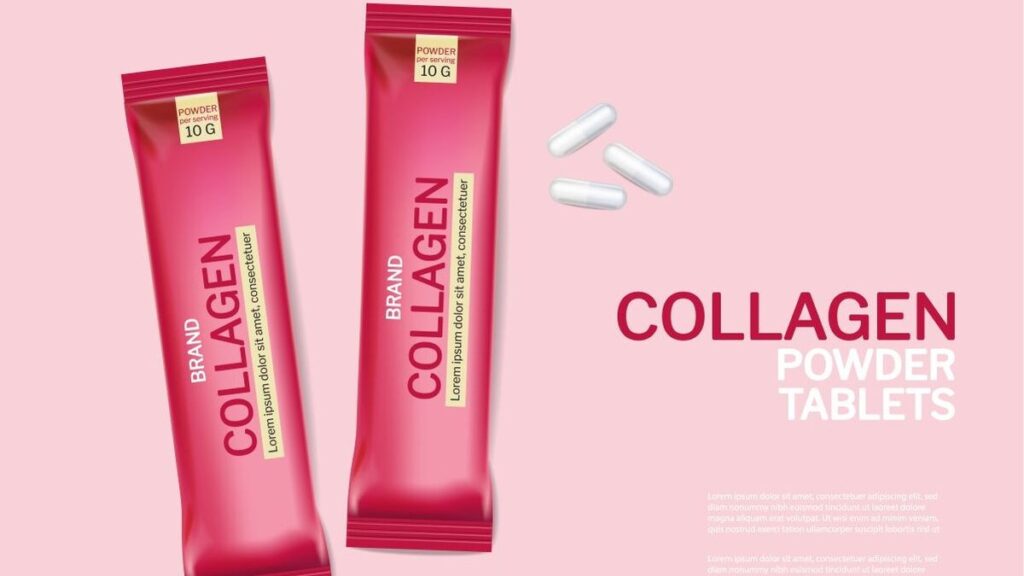Introduction
When someone first mentioned collagen supplements to me, I thought, “Great, another magic pill for perfect skin.” Fast forward a year, and nearly everyone I know—my sister, gym buddies, even my neighbor’s grandma—is raving about it. But while it’s praised as the secret to glowing skin and strong joints, there’s a side no one talks about until it’s too late: the unexpected side effects. This article dives deep into the reality behind the trend, revealing 10 surprising ways your body might react before you see that glow-up.
- Introduction
- How Collagen Supplements Work
- The Good, The Bad, and The Unexpected
- Digestive Issues: The Gut Reaction
- Hypercalcemia: When You Get Too Much of a Good Thing
- Allergic Reactions: Not So Friendly After All
- Bad Taste and Smell: A Nasty Surprise
- Kidney Stones: Risk You Didn't Expect
- Skin Breakouts: Not the Glow You Wanted
- Sleep Troubles: Tossing and Turning?
- Appetite Changes: Feeling Extra Hungry or Full?
- Headaches and Fatigue: Subtle but Real
- Interactions With Medications: A Risk Worth Noting
- Are Collagen Supplements Safe for Everyone?
- Conclusion: Weighing the Pros and Cons
Collagen is the most abundant protein in our bodies, making up our skin, bones, and connective tissues. Collagen supplements are necessary since our bodies produce less collagen naturally as we age. Marketed as a youth potion in a bottle, they’ve flooded the beauty and wellness space. But as with all things that sound too good to be true, there’s more beneath the surface.
How Collagen Supplements Work
Imagine collagen as the glue that holds your body together—literally. It keeps your skin firm, your joints flexible, and your hair shiny. Collagen supplements, often made from bovine (cow), marine (fish), or porcine (pig) sources, are broken down into peptides or amino acids that your body can absorb and use to rebuild its collagen.
The process seems simple: drink it, absorb it, and shine bright. However, not all supplements are created equal. Some contain additives, sugars, or even allergens. And while many people experience benefits like firmer skin or fewer wrinkles, others notice less pleasant changes—bloating, insomnia, or even allergic reactions.
Understanding what you’re putting into your body and how it works with your particular system is crucial. Just because it works for your best friend doesn’t mean it’s your golden ticket, too. Let’s unpack what really goes on behind the scenes when you commit to a collagen supplement routine.
The Good, The Bad, and The Unexpected
Let’s be real. The before-and-after Instagram posts of radiant skin and silky hair are tempting. Who wouldn’t want that? But it’s time to talk about what’s not posted. Collagen supplements do deliver benefits—improved skin elasticity, healthier nails, reduced joint pain—but the flip side is often ignored.
You need the whole picture before you go on the collagen bandwagon. Think of it like buying a car. Sure, it looks shiny, but wouldn’t you want to know if the engine has issues or if the tires go flat easily? It’s the same with collagen supplements—you deserve to know both sides.
Coming up, we’ll explore 10 surprising side effects. Some are minor annoyances, while others may signal bigger health concerns. Don’t worry—we’ll also include tips, personal stories, and steps to avoid the worst of them.
Digestive Issues: The Gut Reaction
One of the most common complaints? Digestive discomfort. Yep, that dreamy scoop of collagen supplement in your smoothie could be the reason you’re feeling like a bloated balloon by lunchtime.
It’s not unusual for people to experience gas, bloating, or a heavy stomach, especially when first starting. The culprits? Additives like artificial sweeteners, high doses, or your body’s struggle to process the peptides quickly. In some cases, it can even worsen existing gut issues like IBS.
Take Jen, a 34-year-old yoga instructor who tried collagen to help with post-workout recovery. She found herself constantly gassy and sluggish. Only after switching to a cleaner formula and lowering her dosage did her symptoms ease.
The good news? These effects often go away once your body adjusts. But if the discomfort sticks around, it’s worth experimenting with dosage, timing, or even switching brands. Always start slow, give your body time to adapt, and choose collagen supplements with minimal ingredients.
Hypercalcemia: When You Get Too Much of a Good Thing
Sounds complicated. But hypercalcemia just means too much calcium in your blood—and it’s more common than you’d think, especially if your collagen supplement is sourced from marine collagen.
Fish bones, used in some marine collagen powders, naturally contain calcium. Over time, if you’re also taking calcium-rich foods or supplements, it can add up and lead to symptoms like nausea, fatigue, or confusion. Scary stuff!
There’s also the risk of calcium buildup in your kidneys or arteries, which you definitely want to avoid. My cousin, a healthy 29-year-old gym junkie, ended up in the ER with kidney pain, only to find his calcium levels were way too high. The likely culprit? That “super clean” fish-based collagen supplement he took every morning.
To avoid this, always read labels and check for added calcium content. If you’re getting calcium from other sources—like dairy or multivitamins—go easy on the marine-based collagen. Better safe than sorry.
Allergic Reactions: Not So Friendly After All
While collagen supplements are typically considered safe, allergic reactions can and do happen. If your supplement comes from fish (marine collagen) or cows (bovine collagen), your body might not take it kindly—especially if you already have a known allergy to these sources.
People have reported symptoms ranging from mild skin rashes and itching to more severe reactions like swelling, breathing difficulties, or anaphylaxis. It’s not just the main ingredient, either—some powders contain hidden allergens or cross-contaminants, especially in cheaper brands.
Let’s talk about Daniel, a 40-year-old runner who wanted to speed up his joint recovery. After a week of taking marine collagen, he noticed swelling around his lips and hives on his arms. It turned out he had a mild seafood allergy that had never caused issues—until now.
The lesson here? Verify the collagen supplement’s supplier at all times. Start with a small dose, and if you have any history of food allergies, consult with your doctor first. You might be better off with hydrolyzed bovine collagen or even vegan collagen boosters.
Bad Taste and Smell: A Nasty Surprise
We all know that beauty comes at a price, but does it have to smell like fish guts or taste like boiled bones? Unfortunately, yes—sometimes collagen supplements come with a less-than-appetizing odor or flavor.
This often depends on the source (marine collagen being the most notorious), the quality of processing, and the added ingredients. While some products are flavorless and mix well into smoothies or coffee, others can make your breakfast feel like a dare.
Take it from Mia, who tried to mix her collagen into warm tea. The smell hit her like a truck—and not the floral kind. She nearly gave up on supplements until she switched to a flavor-neutral hydrolyzed powder.
Here’s how to avoid the gross experience:
- Go for collagen supplements labeled as “odorless” or “flavorless”
- Mix it into flavored drinks like smoothies or protein shakes
- Read reviews before buying (if everyone says it smells bad, believe them!)
If your supplement makes you gag, don’t force it. There are plenty of higher-quality options on the market that won’t offend your nose or taste buds.
Kidney Stones: Risk You Didn’t Expect
Here’s a scary one: collagen supplements might raise your risk of kidney stones if you’re not careful. How? Many collagen-rich proteins contain hydroxyproline, an amino acid that converts into oxalate—a compound linked to kidney stone formation.
This can silently build up over time when consumed in high doses and paired with a low water intake. Combine that with other oxalate-rich foods (like spinach, almonds, or beets), and your kidneys might not be thrilled.
Let me tell you about Raj. He was loving the results of his daily collagen drinks—stronger nails, better skin—but he started feeling a deep ache in his lower back. A doctor’s visit revealed tiny kidney stones forming, possibly triggered by a combo of supplements and dehydration.
Here’s how to keep your kidneys happy:
- Avoid mega-dosing on collagen supplements
- Balance your diet and track your oxalate intake
If you have a history of kidney stones, speak with your healthcare provider before jumping on the collagen trend. It’s all about moderation and awareness.
Skin Breakouts: Not the Glow You Wanted
Imagine buying a collagen supplement hoping to get clear, glowing skin—and instead, waking up with breakouts worse than your teenage years. Yep, it happens. While many users report skin improvements, others find that their skin actually gets worse before it gets better—or just worse, period.
Why? It could be due to the sudden change in protein intake, your body’s detox process, or added ingredients like biotin, which has been linked to acne flare-ups in some people. Others believe that hormones might get slightly triggered by collagen peptides, especially when taken in high doses.
Meet Lily, who was thrilled to try collagen for her dull skin. Two weeks in, she started breaking out on her cheeks and forehead. After trial and error, she discovered her supplement had added biotin, which she didn’t need and which likely triggered the flare-up.
So, if your glow-up turns into a breakout, here’s what to do:
- Check the ingredient list for additives like biotin or sweeteners
- Reduce your dosage and monitor changes
- Try switching to a purer or different type of collagen supplement
Give your skin time to adjust, and remember—everyone reacts differently. Sometimes, less really is more.
Sleep Troubles: Tossing and Turning?
One of the more overlooked side effects of collagen supplements is how they can mess with your sleep. The surprising culprit? Glycine is a primary amino acid in collagen. While glycine can be calming for some, in others, it can do the opposite, leading to jitteriness or restless nights.
Imagine thinking your new nighttime collagen tea will help you wind down, only to find yourself staring at the ceiling for hours. That’s what happened to Mark. He started taking collagen in the evening because of the “calming” claims but ended up sleeping worse than before. Switching to a morning dose changed everything.
To figure out if collagen is affecting your sleep:
- Track when you take your supplement and how you sleep that night
- Try switching to a morning routine
- Choose a collagen supplement without caffeine or other added stimulants
Everybody is different. What helps one person snooze like a baby might keep another up all night. Pay attention to how yours responds.
Appetite Changes: Feeling Extra Hungry or Full?
You may not expect this one, but collagen supplements can affect your appetite—and in opposite ways. Some people feel fuller after taking it, while others think ravenous an hour later. So, what’s going on?
Proteins, including collagen, tend to make you feel fuller for longer. However, glycine (again!) and the way collagen interacts with your metabolism can vary. In some cases, your body may mistake the supplement as a signal to start digestion or raise energy demand, leading to hunger pangs.
Emma started taking collagen for hair growth and suddenly noticed she was eating more snacks throughout the day. Once she adjusted her routine—taking it with a full breakfast—her cravings calmed down.
Here’s what you can try:
- Consume your collagen supplement with food rather than right before bed
- Track your hunger patterns and snack habits
- Adjust your overall protein intake to balance it out
Whether it makes you snack more or less, just be aware of how your appetite responds. It’s all about finding the right balance for your body.
Headaches and Fatigue: Subtle but Real
Some users report experiencing headaches or even fatigue after taking collagen supplements. It’s not super common, but it’s real. The exact cause isn’t always clear, but there are a few suspects—added ingredients, detoxification, or even histamine reactions.
Headaches can be linked to sudden protein intake increases, especially in people sensitive to certain amino acids. Fatigue, on the other hand, might be your body adjusting to processing something new or a response to hidden fillers or preservatives in cheaper brands.
I remember Alex, a busy entrepreneur who tried collagen to boost her energy and skin health. Instead of feeling peppy, she kept getting tension headaches and sluggish afternoons. A nutritionist helped her identify that her supplement contained artificial flavoring and a filler her body didn’t like.
Tips to avoid this?
- Choose clean, additive-free collagen supplements
- Stay hydrated (dehydration is a big headache trigger)
- Give your body a couple of weeks to adapt
If symptoms persist, stop taking it and consult a health pro. Your glow isn’t worth a daily headache.
Interactions With Medications: A Risk Worth Noting
Let’s get serious for a second. Collagen supplements, while generally safe, can interact with certain medications. This is especially important for those on blood thinners, cholesterol drugs, or medications affecting calcium levels.
Because some collagen supplements contain added vitamins and minerals (like calcium, vitamin C, or even herbs), they might alter how your body processes your meds. If you’re not careful, that morning collagen shake could throw off your entire treatment plan.
Rita, a 60-year-old on medication for osteoporosis, began taking marine collagen. Within weeks, her blood work looked off. Her doctor discovered her calcium levels had spiked from both the meds and the collagen, creating a risky imbalance.
If you’re on meds, here’s what to do:
- Bring your supplement label to your next doctor’s visit
- Avoid multi-functional collagen powders unless approved
- Ask your pharmacist if there’s a known interaction
Safety first, glow second. Never mix health trends with prescriptions without a professional thumbs-up.
Are Collagen Supplements Safe for Everyone?
You’ve probably figured it out by now—collagen supplements aren’t one-size-fits-all. While they offer impressive benefits to many, some groups should approach them with caution. People with pre-existing medical conditions, food allergies, or those on medication should always do their homework (or, better yet, talk to their doctor) before diving in.
Pregnant or breastfeeding women, for example, are often advised to avoid supplements unless medically necessary. Why? Because there isn’t enough long-term research on how collagen supplements affect pregnancy or lactation. Similarly, those with autoimmune disorders, chronic kidney disease, or certain digestive disorders may find their symptoms worsened.
And then there’s the quality concern. Some collagen powders come from questionable sources—think poorly regulated overseas factories or animal products that aren’t tested for heavy metals. Scary, right?
So, who should think twice?
- Pregnant or nursing women
- People with seafood, dairy, or meat allergies
- Those with kidney or liver disorders
- Anyone on calcium-affecting meds
If you fall into any of these categories, talk to a healthcare provider first. There are always safer alternatives, like collagen-boosting foods (bone broth, citrus fruits, leafy greens) or plant-based supplements.
Conclusion: Weighing the Pros and Cons
Let’s be honest—collagen supplements aren’t going anywhere. They’ve become a mainstay in beauty and wellness routines around the world. And for good reason! Stronger nails, smoother skin, better joint function? Yes, please. But as with any popular health trend, there’s more than meets the eye.
What we’ve uncovered is that collagen supplements can come with unexpected side effects—from digestive issues and skin breakouts to sleep disturbances and medication interactions. That doesn’t mean they’re bad, just that they aren’t right for everyone. It’s all about being informed, choosing the right product, and listening to your body.
If you’re considering adding collagen to your routine, do your research. Read labels. Start slow. And when in doubt, talk to a healthcare pro. Glowing from the inside out is amazing—but only when it doesn’t come at the cost of feeling your best.


